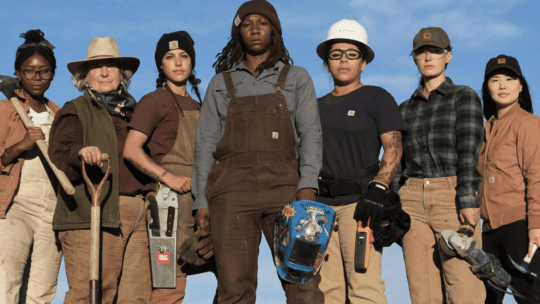
Internal communication has not resided solely inside companies for several years. As employees utilize and access thousands of people daily on social media, the internal becomes the external.
A brand popular with laborers and fashionistas alike, Carhartt took its turn on the cancel culture carousel this morning (Jan. 18). The culprit was a company-wide memo leak.
An email from CEO Mark Valade to all Carhartt employees last week (Jan. 14) said the company was moving ahead with a mandatory COVID vaccination policy. The policy followed the Supreme Court's rejection of a nationwide COVID-19 vaccination and testing mandate last week.
The CEO wrote: "We put workplace safety at the very top of our priority list and the Supreme Court's recent ruling doesn't impact that core value. We, and the medical community, continue to believe vaccines are necessary to ensure a safe working environment for every associate and even perhaps their households. While we appreciate that there may be differing views, workplace safety is an area where we and the union that represents our associates cannot compromise. An unvaccinated workforce is both a people and business risk that our company is unwilling to take."
Amy Hellebuyck, senior PR manager at Carhartt, confirmed the internal email's authenticity for PRNEWS.
In addition, Hellebuyck provided a statement reiterating the company's stance: “Carhartt made the decision to implement its own vaccine mandate as part of our long-standing commitment to workplace safety. Our recent communication to employees was to reinforce that the Supreme Court ruling does not affect the mandate we put in place. Carhartt fully understands and respects the varying opinions on this topic, and we are aware some of our associates do not support this policy. However, we stand behind our decision because we believe vaccines are necessary to protect our workforce.”
Many who disagree with vaccine mandates took to social media to voice their displeasure and their boycott of Carhartt merchandise.
I spend thousands a year on @Carhartt hoodies, jackets & winter gear. Today that ends. I guess I am looking for alternatives. Seriously, this is insane given their target market. I am done purchasing any of their stuff and giving them thousands in free advertising. pic.twitter.com/kyHaNwlO6c
— TheQuartering (@TheQuartering) January 18, 2022
How to Proceed When Internal Becomes External
In this era of easy information sharing, is it necessary for internal communicators to prepare an external strategy for leaked information? Or, is it better to let a fly-by-night social media post disintegrate before the next big outrage emerges?
Olivia Graham, director of employee communications at Cheer Partners, believes transparency is the best policy to calm the stormy seas of public opinion.
"A statement has the power to both ease the tension...as well as add fuel to the fire, so it must be approached with intentionality,” Graham says. “It would be best for leadership to make a statement sharing their decision." Graham adds, "Ultimately, this decision appears to be a move to protect employees as opposed to alienating anybody."
Graham says that in a similar situation it's best "to release a brief statement reassuring shoppers that while customers are incredibly important...so are...employees, and the decision was made with their health and safety interest in mind.”
Letting the moment pass is an option; however, leadership runs the risk of appearing indifferent to customer feedback.
“Ultimately nobody can please everybody and there are strongly differing opinions on the vaccine mandate topic,” Graham says. “The next best move for this brand...would be to share that they hear the frustration, and everyone is entitled to their own opinions and decisions, but likewise this was a decision made on behalf of the brand that is simply in place as an effort to protect their most valued stakeholder, their employees.”
The Personal is Not Always Political
One can find other recent examples of employers placing concern for the workforce and planet above everything.
For example, United Airlines’ CEO Scott Kirby recently said that because of its vaccine policy, the airline has had zero COVID-related deaths among vaccinated employees during the past eight weeks.
And in a somewhat-related story, Larry Fink, BlackRock chief, delivered his annual letter to CEOs yesterday (Jan. 17), placing corporate purpose in a nuanced position. He wrote that stakeholder capitalism has more to do with profits than politics or ideologies. “Stakeholder capitalism is not politics,” Fink's letter reads. “It is not a social or ideological agenda. It is not ‘woke.’”
He added, “It is capitalism, driven by mutually beneficial relationships between you and the employees, customers, suppliers, and communities your company relies on to prosper.”
Nicole Schuman is senior editor for PRNEWS. Follow her @buffalogal
